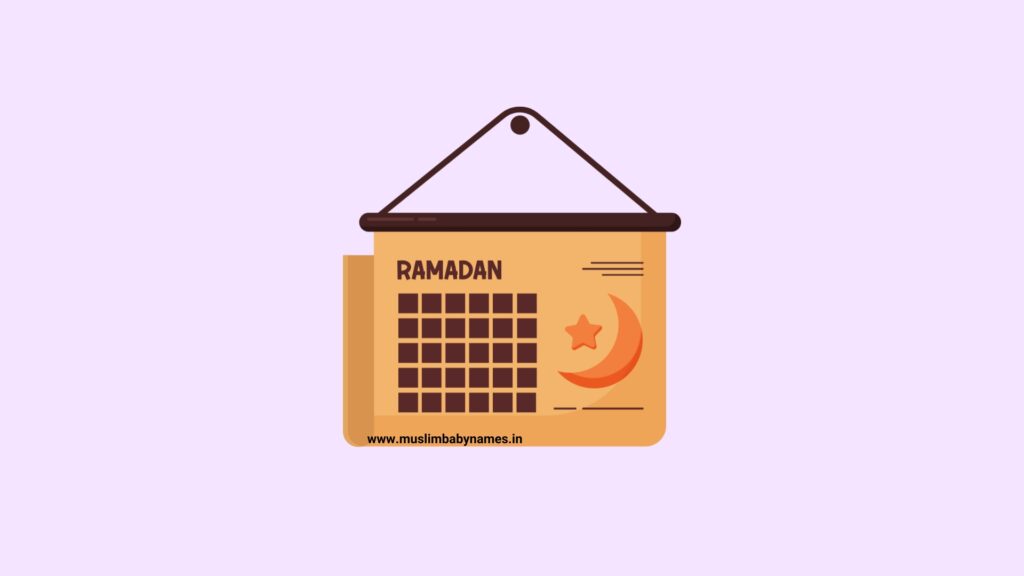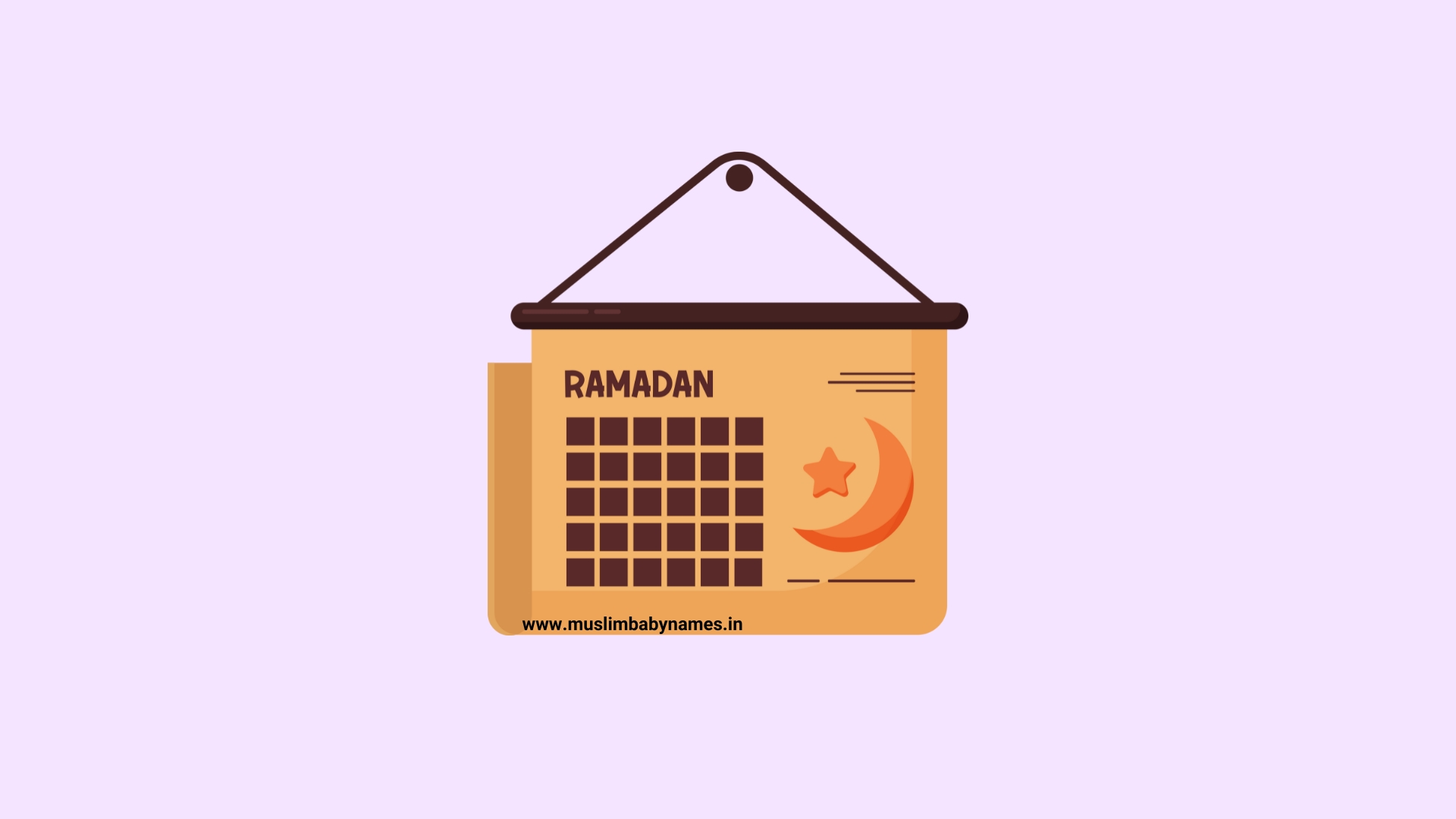Islamic months hold significant spiritual and cultural importance in the Muslim community. Understanding the names of 12 Islamic months not only aids in religious observance but also fosters cultural awareness and appreciation. In this article, we delve into the meanings and significance of the names of Islamic months.

Significance of Islamic Months
Islamic months carry profound spiritual significance for Muslims worldwide. Each month holds its own unique importance, marked by various religious observances and cultural practices. Understanding these months fosters a deeper connection to Islamic traditions and heritage.
Naming Convention of Islamic Months
The Islamic calendar, also known as the Hijri calendar, is a lunar calendar consisting of 12 months in a year of 354 or 355 days. The naming convention of Islamic months dates back to the time of Prophet Muhammad (ﷺ) and follows specific principles rooted in Arabic language and culture.
NAMES OF 12 ISLAMIC MONTHS
| Islamic Month | Arabic | Meaning |
|---|---|---|
| Muharram | مُحَرَّم | Forbidden/sacred |
| Safar | صَفَر | Empty |
| Rabi’ al-Awwal | رَبِيع الْأَوَّل | The first spring |
| Rabi’ al-Thani | رَبِيع الثَّانِي | The second spring |
| Jumada al-Awwal | جُمَادَى الْأُولَى | The first of parched land |
| Jumada al-Thani | جُمَادَى الثَّانِيَة | The second of parched land |
| Rajab | رَجَب | Respect/honor |
| Sha’ban | شَعْبَان | To disperse/sprinkle |
| Ramadan | رَمَضَان | Burning heat |
| Shawwal | شَوَّال | Raised/lifted |
| Dhu al-Qi’dah | ذُو الْقَعْدَة | The one of sitting |
| Dhu al-Hijjah | ذُو الْحِجَّة | The one of pilgrimage |
NAMES OF 12 ISLAMIC MONTHS
Understanding the Meanings
Each name of the Islamic months carries a profound meaning, reflecting various aspects of life and nature. For instance, Muharram signifies a sacred and forbidden month, while Rajab denotes respect and honor. Understanding these meanings offers insights into Islamic culture and values.
Observance and Practices
Islamic months are marked by various religious observances and cultural practices. For example, Ramadan is a month of fasting, while Shawwal is celebrated with Eid al-Fitr festivities. Similarly, Dhul-Hijjah is the month of Hajj pilgrimage, and Muharram holds significance for mourning and reflection.
Ramadan and Shawwal
Ramadan, the ninth month of the Islamic calendar, is observed by Muslims worldwide through fasting from dawn until sunset. It is a month of spiritual reflection, self-discipline, and increased devotion. Eid al-Fitr, celebrated in Shawwal, marks the end of Ramadan with prayers, feasting, and charitable acts.
Dhul-Hijjah and Muharram
Dhul-Hijjah is the twelfth and final month of the Islamic calendar, known as the month of pilgrimage due to the Hajj pilgrimage to Mecca. Muharram, the first month of the Islamic year, holds significance for Muslims, particularly with the commemoration of the martyrdom of Imam Hussain (RA).
Importance of Awareness
Awareness of the names of 12 Islamic months is crucial for fostering cultural understanding and appreciation. It allows individuals from diverse backgrounds to engage respectfully with Islamic traditions and contribute to a more inclusive society.
Conclusion
Understanding the names of 12 Islamic months goes beyond mere recognition; it fosters cultural awareness, appreciation, and respect for Islamic traditions. Each month carries its own unique significance, reflecting the rich heritage and values of the Muslim community.
FAQs
- Why are Islamic months based on a lunar calendar?
- The Islamic calendar follows a lunar system because it aligns with the Hijra (migration) of Prophet Muhammad (peace be upon him) from Mecca to Medina, marking the beginning of the Islamic era.
- Are Islamic months celebrated universally?
- Yes, Islamic months are observed by Muslims worldwide, although cultural practices and traditions may vary from region to region.
- What is the significance of fasting in Ramadan?
- Fasting during Ramadan is one of the Five Pillars of Islam and is observed to purify the soul, develop self-discipline, and increase devotion to Allah.
- Why do some Islamic months have meanings related to nature?
- Islamic months often derive their names from Arabic words that reflect natural phenomena, highlighting the interconnectedness between faith and the environment.
- How can non-Muslims show respect during Islamic months?
- Non-Muslims can show respect by learning about Islamic months, being mindful of cultural sensitivities, and engaging in interfaith dialogue to promote understanding and harmony.


1 thought on “Arabic Names of 12 Islamic Months”